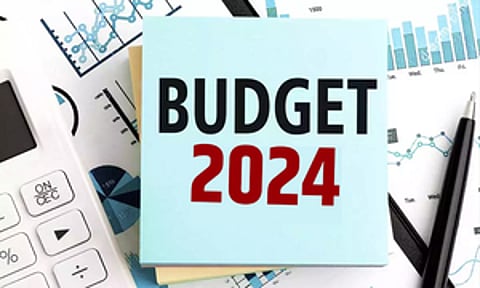

With the vote-on-account for fiscal 2024-25 around the corner, leading industry associations have placed their wish lists before the government, focusing on boosting investments, manufacturing competitiveness, innovation, MSME growth and ease of compliance.
In its memorandum, FICCI has called for maintaining thrust on public and private investments to cushion any slowdown given global headwinds. It suggests extending the concessional tax regime for manufacturing companies under Section 115BAB by 5 years to attract global manufacturers under the China+1 policy.
To boost innovation, FICCI recommends rationalizing the patent box regime by extending the 10% concessional tax rate to sale of patented products made in India. It also suggests allowing royalty income from patent applications awaiting registration to avail this, along with relaxing ‘true and first inventor’ condition to facilitate funding for research.
For MSMEs, FICCI calls for revising qualifying criteria for mandatory TReDS platform registration to companies with over Rs 250 crore turnover, against the current Rs 500 crore threshold. It recommends increasing the NPA norm for MSMEs from 90 to 180 days and leveraging the Account Aggregator framework for MSME lending.
On easing compliances, FICCI suggests rationalizing TDS rates into 2-3 slabs and introducing a small negative list of payments not liable for TDS. It also recommends exempting Buyback Tax on listed shares bought back via open market route.
The industry body further pitches for tax parity between long term capital gains on listed and unlisted shares to boost start-up funding. It also wants deferral of ESOP taxation to be extended to ESOPs granted by all companies rather than just those meeting start-up criteria under Section 80-IAC.
FICCI's other asks include tokenizing assets to enable digital collateral for credit flow, setting up a dispute resolution body comprising independent members for time-bound dispute settlement, and expanding the recently introduced Dispute Resolution Committee mechanism to mid and large-sized companies.
CII Focuses on Revenue Augmentation, Rationalization
The CII proposals focus more on augmenting revenue through aggressive disinvestments and GST reforms while rationalizing subsidies, for fiscal consolidation alongside growth focus.
It pitches for meeting disinvestment targets via better demand assessment and 3-year schedule for stake sales. CII also suggests moving towards a 3-rate GST structure subsuming items like petroleum, electricity and real estate.
For expenditure rationalization, CII calls for targeting food and fertilizer subsidies better using latest data, and considering direct cash transfers for the latter. This can create space for 20% rise in capital spending to Rs 12 lakh crore, it feels.
CII also suggests improving personal income tax collections by linking rebates and exemptions to inflation. It reiterates FICCI’s call for TDS simplification and seeks expanding the Dispute Resolution Committee mechanism to larger companies.
To boost manufacturing, CII suggests continuing the PLI schemes and incentivising component manufacturing. It also pitches for extending the concessional corporate tax rate for new manufacturing companies to 2025.
The industry chamber recommends measures across other areas like setting up dedicated ministries for trade and investments, boosting agriculture sector growth, leveraging demographics for global labor participation, continuing focus on AI policy, sustainability measures including a Green Transition Fund, higher healthcare and education spending via PPPs and establishing an Economic Security Board.
Implementation Holds Key
While the wide-ranging recommendations touch upon various aspects of boosting growth, fiscal prudence, compliances, manufacturing strength, innovation, job creation and sustainability, their implementation within the limited scope of a vote-on-account will be the key thing to watch out for when the government presents it before general elections.